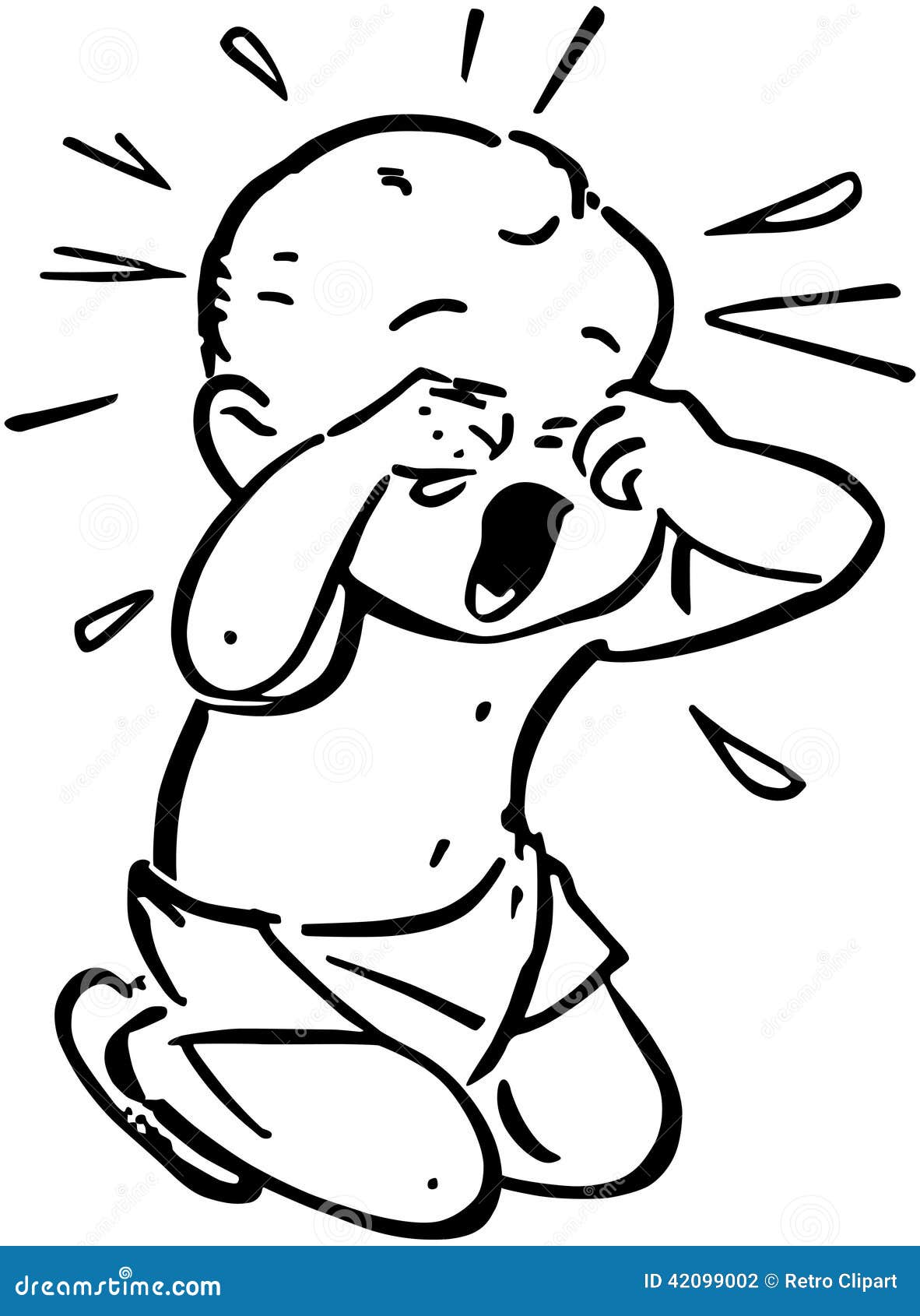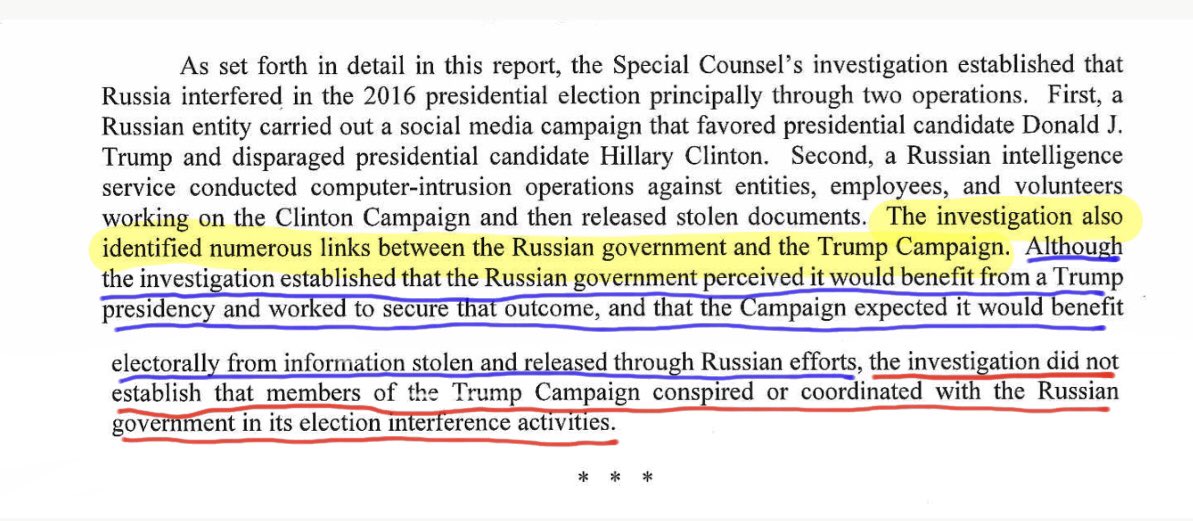So Russia interfered with the election to promote Trump's bid, but the investigation couldn't state that the Trump Campaign itself conspired in that interference.
It's clear Barr took things out of context to shine the best light he could on Trump, I don't think anyone was surprised by that. And of course the Trumpeteers will spin that same narrative. Why understand the whole truth, when only part of the truth is what you need?
This is what it states (page 2) on Trump's obstruction of justice:
Fourth, if we had confidence after a thorough investigation of the facts that the President
clearly did not commit obstruction of justice , we would so state. Based on the facts and the
applicable legal standards , however , we are unable to reach that judgment. The evidence we
obtained about the President ' s actions and intent presents difficult issues that prevent us from
conclusively determining that no criminal conduct occurred . Accordingly, while this report does
not conclude that the President committed a crime , it also does not exonerate him.
...
Several features of the conduct we investigated distinguish it from typical obstruction-of justice
cases. First, the investigation concerned the President, and some of his actions, such as
firing the FBI director, involved facially lawful acts within his Article IT authority, which raises
constitutional issues discussed below. At the same time, the President's position as the head of
the Executive Branch provided him with unique and powerful means of influencing official
proceedings, subordinate officers, and potential witnesses-all of which is relevant to a potential
obstruction-of-justice analysis. Second, unlike cases in which a subject
engages in obstruction of
justice to cover up a crime, the evidence we obtained did not establish that the President was
involved in an underlying crime related to Russian election interference.
Although the obstruction
statutes do not require proof of such a crime, the absence of that evidence affects the analysis of
the President's intent and requires consideration of other possible motives for his conduct. Third,
many of the President 's acts directed at witnesses , including discouragement of cooperation with
the government and suggestions of possible future pardons , took place in public view. That
circumstance is unusual, but no principle of law excludes public acts from the reach of the
obstruction laws. The likely effect of public acts is to influence witnesses or alter their testimony ,
the harm to the justice system's integrity is the same.
...
Soon after the firing of Corney and the appointment of the Special Counsel,
however, the President became aware that his own conduct was being investigated in an
obstruction-of-justice inquiry. At that point, the President engaged in a second phase of conduct,
involving public attacks on the investigation , non-public efforts to control it, and
efforts in both
public and private to encourage witnesses not to cooperate with the investigation. Judgments about
the nature of the President 's motives during each phase would be informed by the totality of the
evidence.



